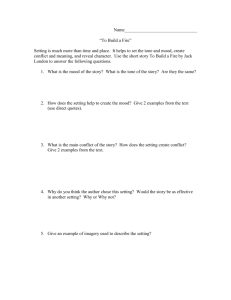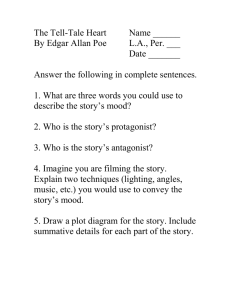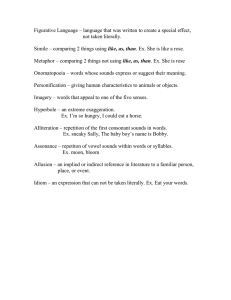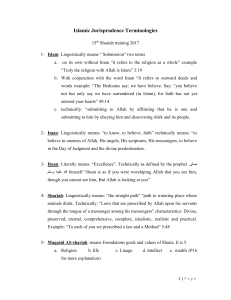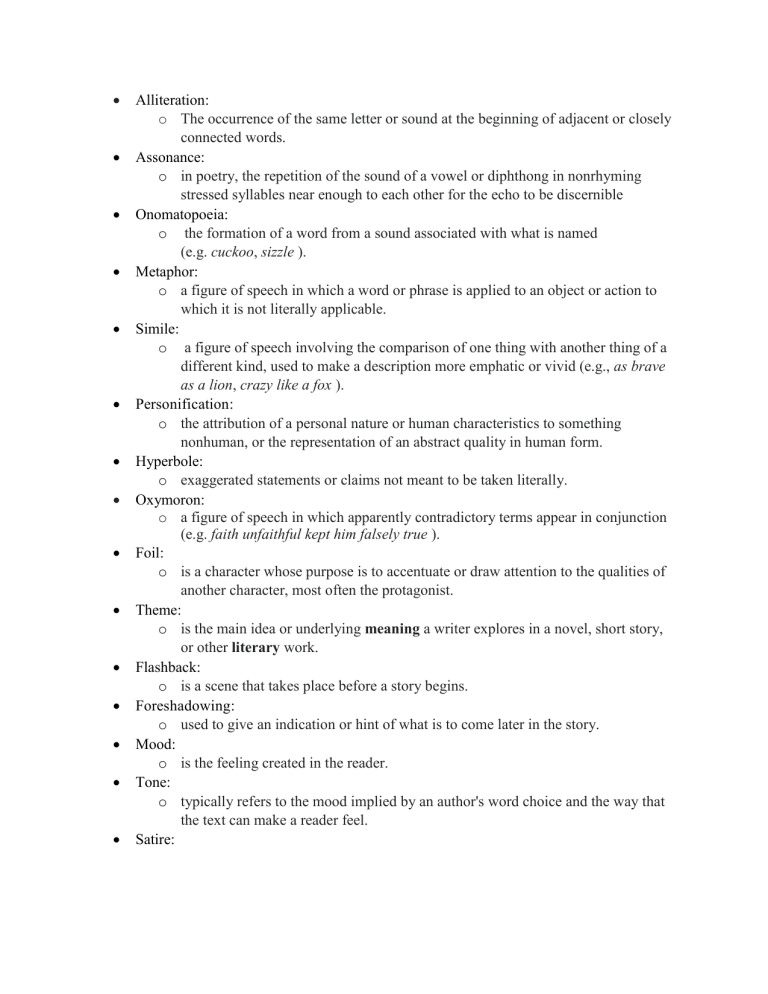
Alliteration: o The occurrence of the same letter or sound at the beginning of adjacent or closely connected words. Assonance: o in poetry, the repetition of the sound of a vowel or diphthong in nonrhyming stressed syllables near enough to each other for the echo to be discernible Onomatopoeia: o the formation of a word from a sound associated with what is named (e.g. cuckoo, sizzle ). Metaphor: o a figure of speech in which a word or phrase is applied to an object or action to which it is not literally applicable. Simile: o a figure of speech involving the comparison of one thing with another thing of a different kind, used to make a description more emphatic or vivid (e.g., as brave as a lion, crazy like a fox ). Personification: o the attribution of a personal nature or human characteristics to something nonhuman, or the representation of an abstract quality in human form. Hyperbole: o exaggerated statements or claims not meant to be taken literally. Oxymoron: o a figure of speech in which apparently contradictory terms appear in conjunction (e.g. faith unfaithful kept him falsely true ). Foil: o is a character whose purpose is to accentuate or draw attention to the qualities of another character, most often the protagonist. Theme: o is the main idea or underlying meaning a writer explores in a novel, short story, or other literary work. Flashback: o is a scene that takes place before a story begins. Foreshadowing: o used to give an indication or hint of what is to come later in the story. Mood: o is the feeling created in the reader. Tone: o typically refers to the mood implied by an author's word choice and the way that the text can make a reader feel. Satire: o the use of humor, irony, exaggeration, or ridicule to expose and criticize people's stupidity or vices, particularly in the context of contemporary politics and other topical issues. Aside: o is a short comment or speech that a character delivers directly to the audience, or to himself, while other actors on the stage appear not to hear. Allusion: o an expression designed to call something to mind without mentioning it explicitly; an indirect or passing reference.
![[100% HDQ]**[VIDEO] Sully Full HD online streaming Watch](http://s2.studylib.net/store/data/018201909_1-d9e42526408b40da0a9798833ad4d3be-300x300.png)
